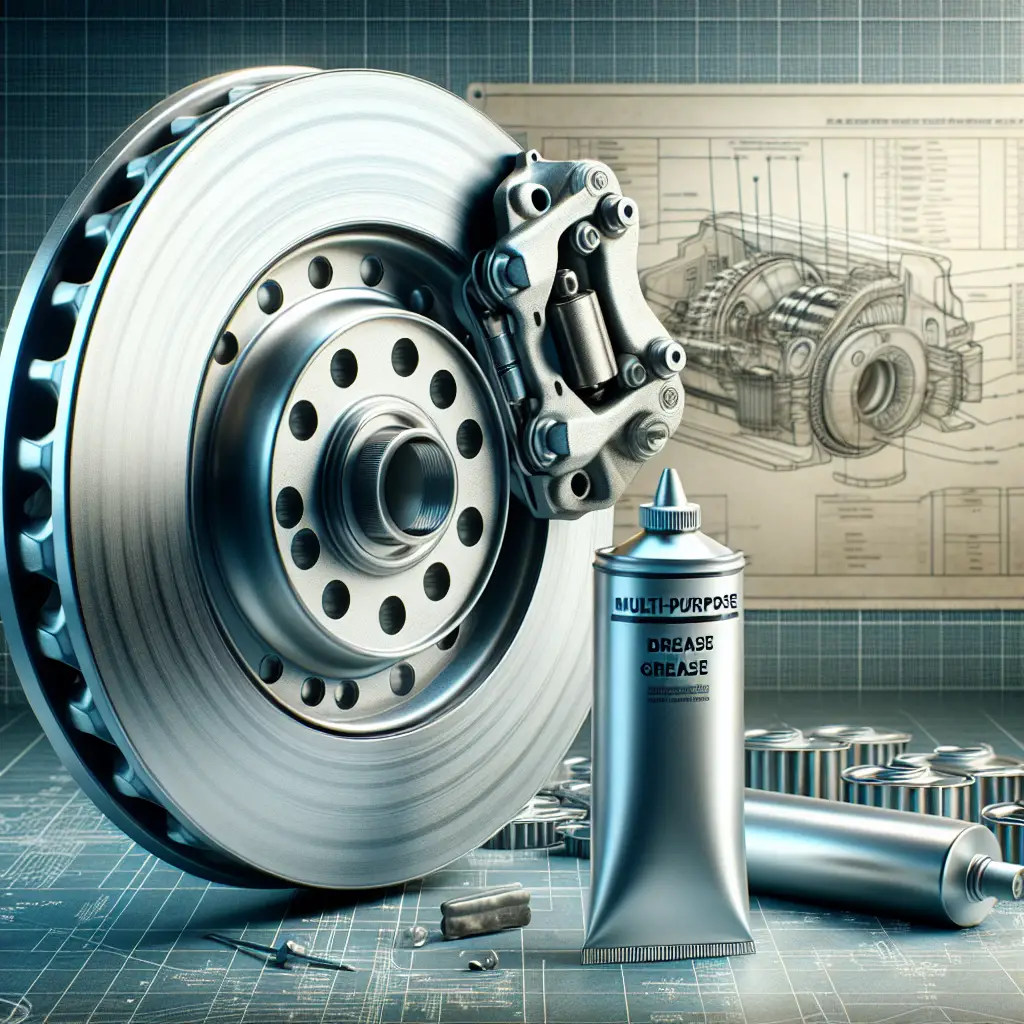Can You Use Multi-Purpose Grease on Brakes? Understanding the Risks and Alternatives
When it comes to car maintenance, understanding the specific requirements for different parts is crucial. One question that surfaces among vehicle owners and DIY enthusiasts is: Can you use multi-purpose grease on brakes? Let’s dive into the important details that every car owner should be aware of to ensure their vehicle’s safety and optimal performance.
The Role of Grease in Brake Systems
Brake systems are critical for vehicle safety, and they function under high stress and temperatures. The National Highway Traffic Safety Administration highlights the importance of properly maintained brake systems for safe driving. Grease can help components move smoothly and prevent wear by reducing the friction between metal parts.
However, when it comes to brakes, not just any grease will do. Brakes reach extremely high temperatures, and typical multi-purpose greases may not withstand these conditions. Using the wrong type of grease can lead to a decrease in performance, potential failure, or even catastrophic accidents.
Why Multi-Purpose Grease Is Not Suitable for Brakes
Multi-purpose grease is formulated for general lubrication tasks. Its resistance to high temperatures and properties to repel water and withstand pressure may be sufficient for bearings, hinges, and other standard applications. But, as Car and Driver experts explain, the unique environment within a braking system demands specialized products.
The main issues with applying multi-purpose grease to brake components are:
- Melting Point: Typical multi-purpose greases can’t handle the heat generated by braking, which can reach upwards of 392°F (200°C). Once the grease melts, it not only stops providing lubrication but also can damage brake parts.
-
Contamination: If multi-purpose grease overheats, it can run and contaminate brake pads and rotors, leading to reduced braking efficiency or brake failure.
-
Compatibility: Brake systems involve rubber and plastic parts that may not be compatible with the additives in multi-purpose grease. This can result in degraded components and potential system failure.
Appropriate Lubricants for Brake Systems
The importance of using the correct lubricant cannot be overstated. The Car Care Council recommends using brake-specific products that are formulated to withstand high temperatures and protect against corrosion without damaging brake system components.
High-temperature brake grease or brake caliper grease should be used for areas such as the caliper pins and under the abutment clips. Apply only a thin layer to avoid attracting dust and debris, which can lead to additional wear.
For rubber components like o-rings and seals, a silicone-based lubricant or dielectric grease is appropriate because it won’t cause the rubber to swell or degrade.
Alternatives to Multi-Purpose Grease for Brakes
If you’re in a pinch and don’t have access to brake system-specific lubricants, there are temporary alternatives you could consider. However, these should only be used as a last resort, and you should plan to replace them with suitable brake lubricant as soon as possible.
- Anti-Seize Compound: While not ideal, anti-seize has a high melting point. Still, it’s not designed for the movement found in brake systems and can get on brake pads if not carefully applied.
- High-Temperature Wheel Bearing Grease: This type may withstand the temperature but still possesses the potential to damage rubber and plastic components in the brake system.
Maintenance Tips for Brake Systems
Proper maintenance of your braking system is vital. Here are some tips to help you maintain the effectiveness of your brakes:
- Regular Checkups: Schedule regular brake inspections to ensure that all components are in good condition and functioning correctly.
- Correct Lubricants: Always use the correct lubricants for each part of the brake system. This will preserve the integrity and performance of your brakes.
- Cleanliness: When servicing your brakes, ensure that all components are clean and free from dirt, grease, and other contaminants before applying new lubricant.
Conclusion
While multi-purpose grease is a valuable tool for many purposes throughout the automotive world, using it on brake components is not recommended. The unique demands of the brake system require specialized products. Always refer to your vehicle’s manual or consult with a professional mechanic to ensure that you are using the appropriate lubricant for each part of your car.
Understanding the risks of incorrect maintenance and staying informed on proper practices is key to ensuring the longevity and safety of your vehicle’s brake system. By doing so, you can help avoid costly repairs and reduce the risk of brake-related accidents.
Remember that vehicle maintenance is more than just a practice—it’s a commitment to safety and reliability. Take the time to understand your car’s needs, and consider reaching out to professional services or forums such as AutoZone’s expert advice or automotive subreddit communities for further guidance and support in your maintenance endeavors.

